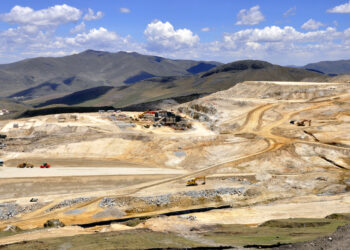Anglo American (LON:AAL) said on Wednesday it had sold a minority stake in the Grosvenor coking coal mine in Australia for about $141 million to a consortium of Japanese companies.
The diversified miner, which has consistently been offloading coal operations since 2014, said the 12% interest was acquired by a group of companies that includes Nippon Steel Corp, Mitsui & Co Ltd, Nippon Steel Trading Corp, Shinsho Corp and JFE Mineral Co Ltd.
The consortium already owned 12% of Anglo’s next-door Moranbah North coal mine, which provides the processing infrastructure for Grosvenor, located in the Bowen Basin, central Queensland.
“The alignment of ownership interests across the Moranbah-Grosvenor operation is an important step forward as we unlock the considerable additional value that we see,” Seamus French, CEO of bulk commodities at Anglo American, said in the statement.
Stake in Grosvenor coking coal mine is being acquired by a consortium of Japanese companies that includes Nippon Steel Corp, Mitsui & Co Ltd, Nippon Steel Trading Corp, Shinsho Corp and JFE Mineral Co Ltd.
French said the move would facilitate the delivery of value
creation opportunities, including expanding the existing plant and speeding up
various processes.
While the company is moving away from thermal coal, metallurgical
or coking coal appears to be one of its key commodities moving forward.
Despite a slight production drop from 23-25 million tonnes to 22-24 million tonnes expected next year, Anglo recently increased its metallurgical coal guidance for 2022 to an estimated 26-28 million tonnes.
Top mining companies have been reducing or eliminating their exposure to coal on
environmental grounds. Rio Tinto (ASX, LON: RIO), the world’s second largest
miner, fully exited the coal sector in March 2018, with the
sale of its Kestrel coal mine in Australia to private equity manager EMR
Capital and Indonesia’s Adaro Energy for $2.25 billion.
Rival BHP (ASX, NYSE:BHP) took a step in the same direction in July, revealing it had been considering options to divest its thermal coal business, which includes assets in Australia and Colombia.
Shareholders at the world’s largest mining company, however, don’t seem too keen to ditch coal. Last week, Australian investors voted against a plan that would have seen BHP leave lobby groups that promote policies at odds with the goals of the Paris climate accord. The agreement, signed in 2016 by almost 200 nations, aims at reducing emissions of gases that contribute to global warming.
Australia’s South32 (ASX, LON, JSE:S32), which
spun out of BHP in 2015, is another company to have recently kissed the fossil
fuel goodbye. In early November, it sold its thermal coal operations to Seriti Resources and
two trusts, for 100 million rand ($6.78 million) upfront.














